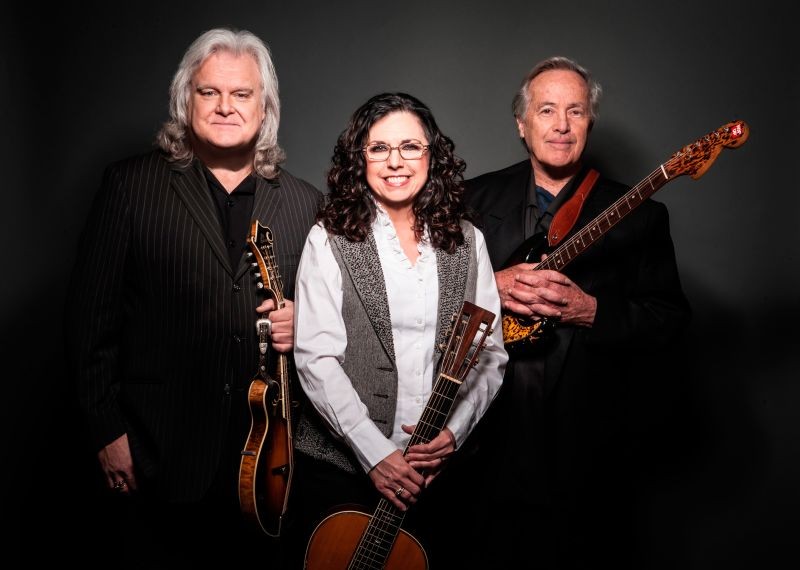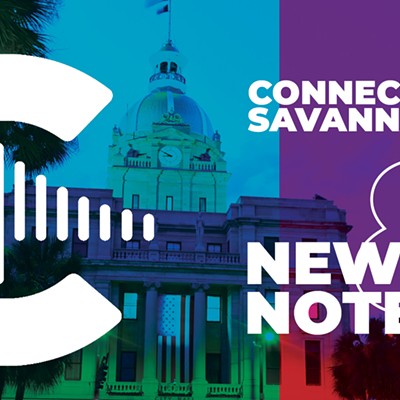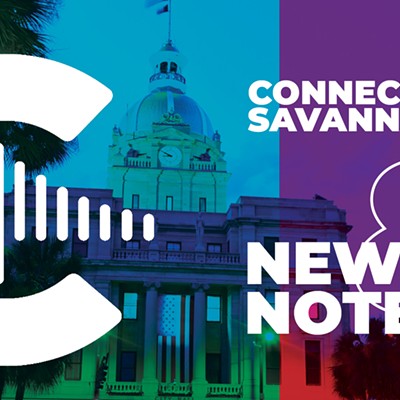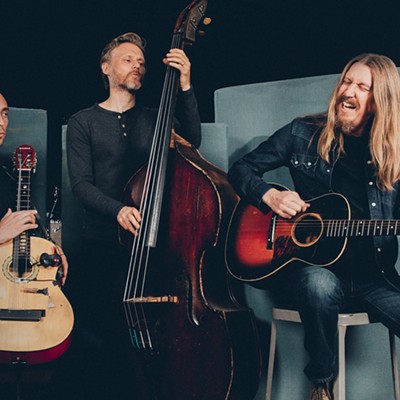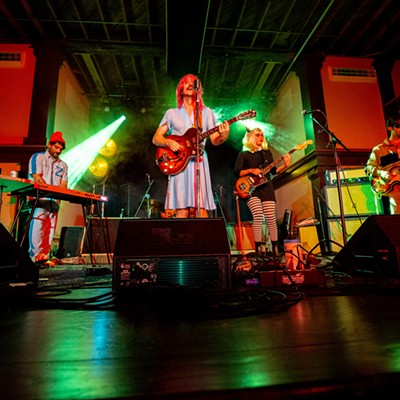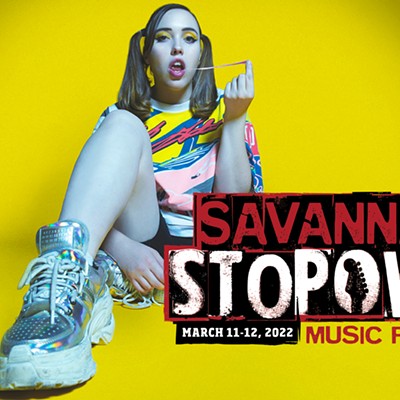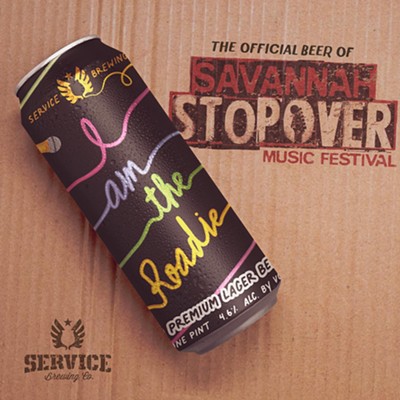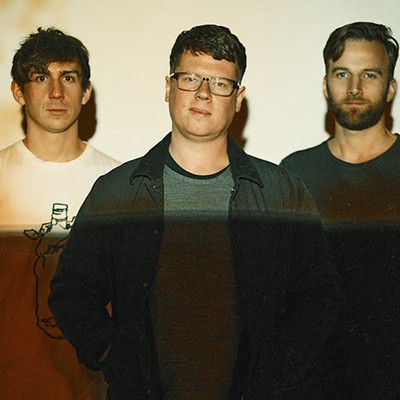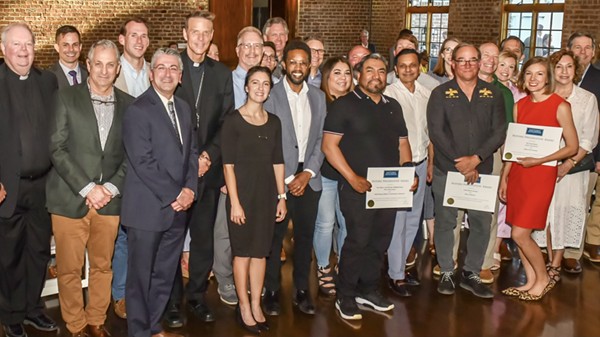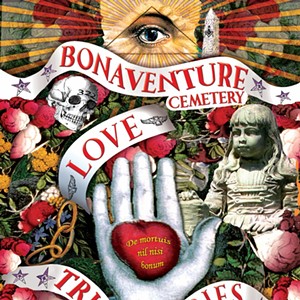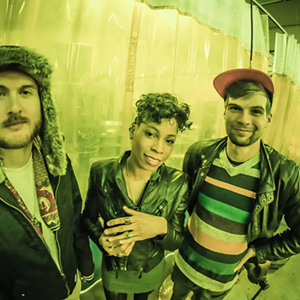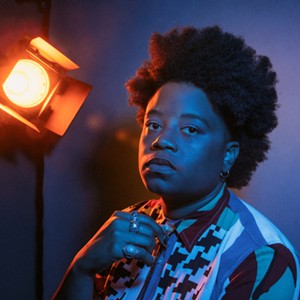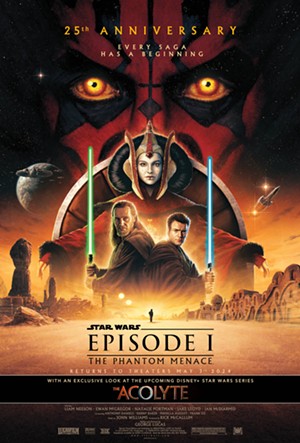14 GRAMMY AWARDS. Eight Country Music Association Awards. Nine Academy of Country Music Awards. 11 International Bluegrass Music Association Awards. Nine Inspirational Country Music Awards. Two Dove Awards. And many, many more.
Ricky Skaggs’ trophies certainly speak for themselves, but the country/bluegrass player’s radical impact on traditional American music is sure to outshine his illustrious prizes.
A veritable prodigy who began playing mandolin at the age of five, Skaggs joined icon Bill Monroe onstage when he was just six (the hometown audience chanted for “Little Ricky Skaggs” until Monroe called him up). At seven, Skaggs received his first paycheck for playing on Flatt & Scruggs’ TV show; at 17, he was playing with bluegrass patriarch Ralph Stanley.
The youngest inducted member of the Grand Olde Opry, Skaggs has been credited with “single-handedly” saving country music, but he’s dabbled in all manner of genres over the years, notably returning to his bluegrass roots in the ‘90s and ‘00s.
Skaggs returns to Savannah Music Festival with wife Sharon White, gifted vocalist for country-gospel group The Whites, and guitar hero Ry Cooder (he’s collaborated with Captain Beefheart, The Rolling Stones, Van Morrison, Neil Young, Eric Clapton, and many more, and produced Buena Vista Social Club’s Grammy-winning self-titled album).
We spoke with the legend about the exciting trio collaboration and his incredible musical story.
Your father gave you your first mandolin when you were five. Why mandolin? Did he play it himself?
Very little. He played acoustic guitar, and his brother that got killed in World War II, he played mandolin and sang harmony with my dad. They had a brothers’ duet thing when they were teenagers. When he got killed, I think my dad, somewhere in his heart, made an inner vow that, if he had a son that showed any kind of musical interest, he’d buy him a mandolin.
Playing with Ralph Stanley at 17 years old must have been like bluegrass college or something.
Oh, it certainly was!
I guess I was 15, it was summer, school was out...me and Keith Whitley found out that Ralph was coming to this little beer joint. We couldn’t get in there ourselves, so my dad took us all and Keith’s brother. Ralph heard us sing at 15, invited us to go out to a bluegrass festival that summer, and that started a great relationship when I got out of high school.
I graduated—well, I didn’t quite graduate, I needed one credit. I was short in English of all things! I don’t speak the English well—I do speak ‘Mountainese.’ [Laughs] Anyway, Ralph took us on full-time when I got out of high school that summer when I was 16. We just started traveling, went through ‘Ralph Stanley College of Music.’
I have a lot of music training, and when I say ‘training,’ it was just playing. It wasn’t any formal training at all. My dad was great about introducing me to a lot of old guy musicians. I sat at their feet: old banjo players, mountain fiddle players.
Do you think that’s the best way to learn roots music, from playing with experienced musicians as opposed to formal training?
Absolutely. I have a whole band full of these young musicians, and they don’t actually sit at my feet, but musically they do. To sit at someone’s feet is a position of learning, an honor. You want to learn what they know. I think you have to have a teachable spirit, because the student gets taught, but the teacher gets taught, too. There’s no way that I know it all—I never will know it all!—but I do love the process of training and releasing. It’s a scriptural thing.
I think maybe I take it more serious now than I did when I was much younger, but now, at 61, I think about legacy. I don’t care so much about legacy...but I do care about quality of what I do and the character that I have, and I try to impart that to young men and young women.
The seed you sow is what comes back: if you sow blessings, and you sow goodness, mercy, forgiveness, those things grow up and they come back to you. If you sow bitterness, envy, jealousy, strife, that comes back that grows up as a crop.
Everybody that leaves my band, I always pray over them and bless them. I never want anyone to leave with a curse or leave with bitterness in their heart.
People always say that you’re responsible for saving roots music. How have you seen public opinion of traditional music change in your career? Do you feel like it’s made a comeback, of sorts, on the popular music level?
I think, to a degree, they can understand and comprehend it a lot of roots music it’s not easy to play. It sounds simple sometimes, but it’s not easy to play it with the heart and spirit that it was created for. I appreciate groups, like even Old Crow [Medicine Show], how they’ve taken the old Tennessee string band, North Georgia sound, and really reinvented it and got kids hopping out of their seats.
A lot of the young bluegrass bands I’m seeing—and it’s maybe just because I’m getting older—but I’m seeing younger and younger bands. I do think that, with the Internet and the accessibility to YouTube, and accessibility to just any kind of music, anytime, you can pretty much get it.
I’m also seeing children of the computer that sit down and play in front of a computer—banjo, fiddle, they got a headful of knowledge and no experience yet. That’s when the fathers really have to step in with love and tenderness, not with a sword, but with patience, and teach these young ones how to play in a band. It’s one thing to be able to fly on your instrument and be great in your bedroom, but it’s something else to have five or six other guys up there playing.
How do you play backup? How do you learn when not to play? Those are valuable lessons that we need to be teaching.
How did you and Ry start working together?
We met at a Grammy show, probably in early 2000. We talked and bragged on each other, it was sweet...then we just started exchanging emails.
Sharon and I were doing our duet CD, Hearts Like Ours, and asked if he’d come and lend his talent on a song, and it ended up being two songs. In an interview, he mentioned he would really love do to a project with Ricky and Sharon, and that just kind of led to doing some work together. We said, ‘Oh, that would be perfect!’
It must be a lot of fun working with Sharon. How did your collaboration evolve?
It’s great! We were able to do Hearts Like Ours, and there was such joy in the whole process of finding songs, sitting down and arranging them together, picking up musicians we thought would be a great fit. It's wonderful. [Sharon]'s such a beautiful singer, and people are really seeing that.

